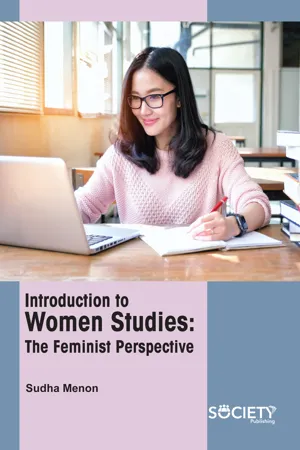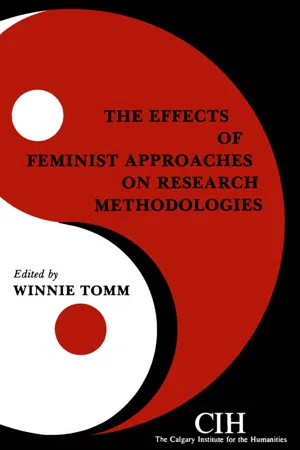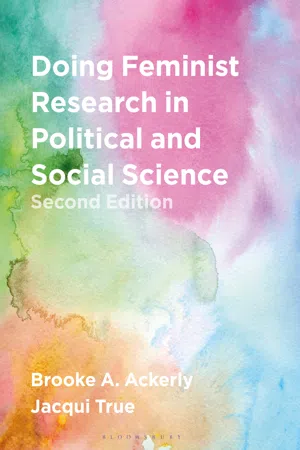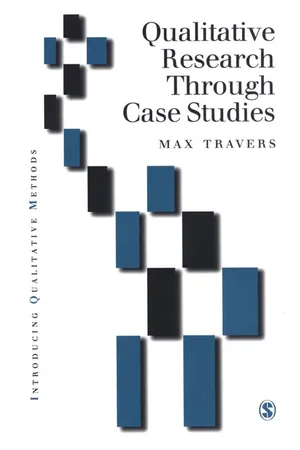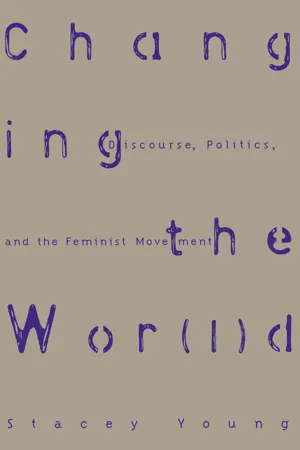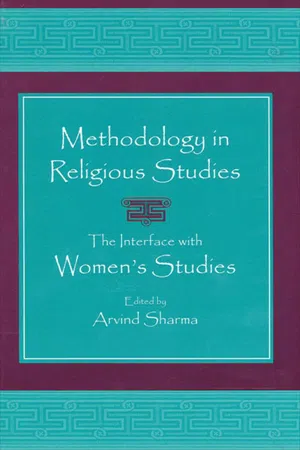Social Sciences
Evaluation of Feminism
The evaluation of feminism involves assessing the impact and effectiveness of feminist theories and movements in addressing gender inequality and discrimination. It encompasses examining the achievements, challenges, and ongoing relevance of feminist ideologies and activism in various social, political, and cultural contexts. This evaluation is crucial for understanding the progress made and identifying areas for further advancement in gender equality.
Written by Perlego with AI-assistance
Related key terms
1 of 5
6 Key excerpts on "Evaluation of Feminism"
- Sudha Menon(Author)
- 2023(Publication Date)
- Society Publishing(Publisher)
These studies see social life as a continuous cycle of oppression enactments and responses to exploitation. They also provide a language for discussing micro macro relationships, which includes terms like ruling relations, local actualities of lived experience, and texts. Feminist theorists can use this lexicon to think about how systemic inequality shapes women’s daily lives. 2.3. FEMINIST SOCIOLOGICAL THEORY Feminist sociology theory is a method of studying society that is both academic and political. It is both critical and instructional, analyzing and informing the reader. It is inextricably linked to the approach. Feminist sociology arose as a response to traditional sociology’s lack of gender, laying forth a plan for academic and social transformation. Since feminism is interdisciplinary in nature, as we’ll see below, feminist sociological theory has included findings and methods from political science, literature, geography, anthropology, and, perhaps most crucially, philosophy. It has been ostracized and shunned, and most sociologists have never fully grasped it. The sociological and feminist roots of feminist sociological theory, as well as its impact on the field of sociology, will be examined in this chapter. The beginning point is an examination of how, until recently, sociology has been dominated by males, oriented on the male, shaped by male ideas, and dominated by men. Despite the fact that women have been active participants in the discipline from its inception, their views and ideas were mostly ignored during the 19 th and 20 th centuries. Feminists contend that social life—work, family, the economy, politics, education, and religion— cannot be fully examined without gender as a major analytic category.- Winnie Tomm(Author)
- 2006(Publication Date)
- Wilfrid Laurier University Press(Publisher)
Chapter 10 THE IMPACT OF A FEMINIST PERSPECTIVE ON RESEARCH METHODOLOGIES: SOCIAL SCIENCES Kathleen Driscoll and Joan McFarland* Introduction Feminist scholarship has been in the forefront of the debate over appropriate research methodologies. It is a debate which has been sorely lacking in other areas of research. Part I is about general issues raised in the social sciences by feminist discussion of the research process. It concludes with an outline of the important characteristics of an evolving feminist research methodology. The intention of Part II is to discuss the difficulties that feminists encounter in regard to the content and methods of economics, particularly in the neo-classical paradigm, and to illustrate these difficulties with the presentation of the results of a survey of articles on the subject of women in recent economic journals. The conclusion points to the importance of methodological issues in relation to the kind of policy recommendations made by economists. PART I: Issues in Research Methodology Conceptual Framework and Research Techniques Research methodology is examined according to two interconnected processes: (1) conceptual framework and (2) techniques of data collection and analysis. Techniques of data collection and analysis are not neutral. They are shaped by the conceptual framework and they may, in turn, further shape that framework. Each technique embodies decisions concerning The conceptual approach and the organization were co-authored. Kathleen Driscoll (sociologist) was mainly responsible for Part I. Joan McFarland (economist) was mainly responsible for the analysis of economics, and Part II. 186 Effects of Feminist Approaches appropriate units of study, the important characteristics of the units, and the relationship between units (Graham 1983). Each technique's usefulness and its limitations are structured by its underlying assumptions. Adopting a research technique means adopting its conceptual framework.- Brooke A. Ackerly, Jacqui True(Authors)
- 2019(Publication Date)
- Bloomsbury Academic(Publisher)
Such a perspective is informed by critical, post-colonial, post-structural theories and neo-Marxist political economy. This form of feminism is the lens that guides this book, but throughout the book we also cite other feminist perspectives thereby exhibiting a broad range of perspectives. KEY CONCEPT 2 Doing Feminist Research in Political and Social Science In this book, we argue that a critical feminist perspective is expressed (in part) through a feminist research ethic that guides our research decisions. That ethic helps us to reflect on and attend to dynamics of power, knowledge, relationships, and context throughout the research process. Since this book is specifically focused on how to do feminist research, we assume our readers will already have a fair idea about what feminism is, and its main variants. However, Box 1.1 discusses the schools’ approach to feminism and how they relate to feminist methodology and doing feminist research. 1.2 FEMINIST RESEARCH ETHIC A feminist research ethic is a methodological commitment to any set of research practices that reflect on the power of epistemology, boundaries, rela-tionships, and the multiple dimensions of the researcher’s location through-out the entirety of the research process and to a normative commitment to transforming the social order in order to promote gender justice. It is an ethic in two senses. First, it demands that we use critical reflection as a work ethic during research, and second it encourages us to recognize the provisionality and contingency of data and the construction of knowledge through catego-rization and boundaries, as well as the need to relate to these categories and boundaries in non-essentialist and transformative ways (see Chapter 2 ).- eBook - PDF
- Max Travers(Author)
- 2001(Publication Date)
- SAGE Publications Ltd(Publisher)
All the qualitative studies I have reviewed in previous chapters are mainly concerned with the experiences and perspectives of men. They also all use sexist language, in the sense of referring to the people they are describing, and the reader, as if these are all male. Although many textbooks still get published which barely acknowl-edge the existence of feminism as a theoretical perspective, this is much less likely to be the case today. There is now a large body of feminist scholarship in almost all areas of the social sciences and humanities, and feminists have become a powerful pressure group inside professional organizations such as the American Sociological Association. Feminist work is regularly published in mainstream journals and edited collec-tions, as well as in specialist publications such as Signs or Women's Studies International Forum. These goals have been achieved through conventional forms of political activity, such as trying to build support inside political parties, and organizing mass rallies and demonstrations. The feminist movement has also, however, developed a distinctive form of grass-roots activism based on groups of women meeting to discuss and share their problems, which is known as 'consciousness-raising' (Spender 1980, pp. 129-33). Other movements representing low-status and subordinate groups have employed similar techniques to build support (a good example is how the slogan 'black is beautiful' was used by black power activists during the 1960s to raise the self-esteem of American blacks). However, femin-ists have taken this a step further by encouraging women to talk about their personal troubles, such as their experience of emotional and physical abuse at home, or discrimination at work, and to view these in political terms. - eBook - ePub
Changing the Wor(l)d
Discourse, Politics and the Feminist Movement
- Stacey Young(Author)
- 2014(Publication Date)
- Routledge(Publisher)
4 Social Science Studies of the Women's Movement: Problems in Theory and MethodScholarship on the women's movement in sociology and political science has attempted to capture its character, aims, and impact. Because of some common features these studies share, however, they tend to reflect a relatively traditional, interest-group perspective on feminist action. This is particularly true of those studies that focus exclusively on feminist legislative activity. Some recent studies have enjoyed greater success in examining other types of feminist activity as well, and some of these later works even seek to evaluate non-policy activity on its own terms. Nevertheless, legislative activity remains the dominant concern of scholarship on the women's movement even in these works. Moreover, feminist discursive activity, aimed at transforming cultural paradigms, remains inadequately specified even in those texts in which it is identified and examined.This omission (in some cases) or shortchanging (in others) of feminist discursive politics has consequences not only for how scholars describe and analyze sexist domination and feminist resistance to it, but also for how they assess feminist success. Moreover, a policy emphasis renders some data (legislative changes, election results, lobbying records) legitimate, and others (discursive and symbolic activities, including speech acts, writing, publishing, dissemination of visual images, etc.) illegitimate for the study of a movement. Consequently, the participants and ideas associated with the former are highlighted, while those associated with the latter are elided.The fundamental approaches that produce the studies' uniform perspective on domination and resistance can be summarized in the following ways. 1. These studies tend to construct women in essentialist and homogenizing terms (often through the narrow range of concerns the studies identify as feminist). - eBook - PDF
Methodology in Religious Studies
The Interface with Women's Studies
- Arvind Sharma(Author)
- 2012(Publication Date)
- SUNY Press(Publisher)
The controversies over definitions of feminist method, fem- inist theory, and feminist practice that ensued are laid out deftly by Neitz. 70 Jones This article and the other contributions to the special issue provide an excellent overview of the history and current debates surrounding feminist scholarship. A second contribution, from the special issue mentioned above, is Rose Brewer’s “Black Women and Feminist Sociology: The Emerging Perspective.” Brewer argues that a major critique of social science emanates from the writ- ings of a black feminist intelligentsia. The theoretical basis for this critique is an expanding appreciation of the intersection of race, class, and gender in all social phenomena and the unconscious incorporation of dominant, that is, colonizing, perspectives in the discipline of sociology. As Brewer examines the belief in assimilation and the colonization of black women’s intellectual lives, she calls for a new sociological paradigm that will be informed by black women’s experiences and historical positioning. Elements of this argument are included below under “Research on Women’s History and Experience.” The third contribution, Ruth Wallace’s “Feminism: Expanding the Hori- zons of the Sociology of Religion,” examines the “containment of feminism” in the sociology of religion. The notion of “containment,” originally put for- ward by Judith Stacey and Barrie Thorne, 13 argues that feminist sociologists have achieved some success in correcting sexist biases in the discipline, but have not been successful in reconstructing basic sociological paradigms. Wallace examines the containment model by demonstrating how feminist contribu- tions have critiqued and reevaluated existing theories, particularly those of Talcott Parsons and Max Weber. She further notes how “missing” theoretical issues, brought to the fore and analyzed by feminist scholars, can be signifi- cant in the sociological understanding of religion.
Index pages curate the most relevant extracts from our library of academic textbooks. They’ve been created using an in-house natural language model (NLM), each adding context and meaning to key research topics.
